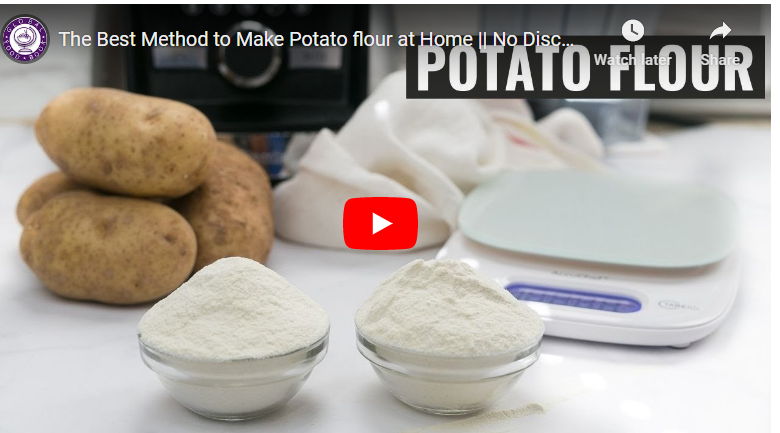Lettuce is a versatile and nutritious vegetable that is a staple in many households. Despite its popularity, many people struggle with keeping lettuce fresh for an extended period. Whether you purchase your lettuce from the grocery store or grow it in your own garden, it can be frustrating to watch it wilt and spoil before you have a chance to use it.
Preserving lettuce for long time storage requires careful attention to proper temperature, humidity, and air circulation. Store lettuce in the crisper drawer of the refrigerator, where temperatures are the coolest. Keep the drawer closed as much as possible to retain moisture and prevent wilting.
Wash and dry lettuce thoroughly before storing. Wrap the lettuce in a paper towel and place it in a plastic bag with a few holes to provide air circulation. Change the paper towels every few days to keep the lettuce dry and crisp. Discard any wilted leaves to keep the rest of the lettuce fresher for longer.
How To Preserve Lettuce
Lettuce is a leafy green plant that belongs to the Asteraceae family. It is an annual plant that is widely cultivated for its edible leaves, which are often used in salads and sandwiches.
Lettuce grows best in cool weather and prefers well-draining soil that is rich in organic matter. There are many different types of lettuce, including romaine, iceberg, butterhead, and more, each with its own unique taste and texture.
Read Also: How To Preserve Aloe Vera For Long-Time Storage
Lettuce is a great source of vitamins, minerals, and fiber, making it a nutritious addition to any diet.
Here is how you can preserve Lettuce for later or future use.
Step 1: Choosing the Right Lettuce
When it comes to preserving lettuce, choosing the right type of lettuce is crucial. The first step is to consider the type of lettuce that you want to buy.
There are many different varieties of lettuce available, such as romaine, iceberg, butterhead, and more. Each type of lettuce has a slightly different taste and texture, so it’s important to choose one that suits your preferences.
Read Also: How To Preserve Apple for Long-Time Storage
When selecting lettuce, look for fresh, crisp leaves that are free from any browning or signs of decay.
Avoid lettuce that appears wilted, slimy, or has any dark spots or discoloration. Also, it’s best to purchase lettuce that is in season and locally grown to ensure optimal freshness.
Once you’ve selected your lettuce, it’s important to store it correctly to preserve its freshness.
Step 2: Preparing Lettuce for Storage
Now that you’ve selected your lettuce, it’s time to prepare it for storage. Proper preparation is key to ensuring that your lettuce stays fresh for as long as possible. The following are some steps you can take to prepare your lettuce for storage:
Read Also: How To Preserve Avocado For Long Time Storage
Step 1 – Cleaning Lettuce
Start by washing your lettuce under running water to remove any dirt or debris. Then shake gently the leaves to remove excess water.
Step 2 – Drying Lettuce
After washing, it’s important to dry your lettuce thoroughly. You can do this by using a salad spinner, laying the leaves on a clean kitchen towel, or using a paper towel to gently pat the leaves dry.
Read Also: How To Preserve Beans For Long Time Storage
Step 3 – Cutting and Chopping Lettuce
If you plan to cut or chop your lettuce, it’s best to do so just before you plan to use it. Cutting or chopping lettuce can cause it to wilt more quickly, so it’s best to avoid this step until you are ready to use it.
Step 3: Storing Lettuce
There are different methods of storing Lettuce. These include storing in plastic bags, using containers, and wrapping in paper towels.
#1. Storing Lettuce in a Plastic Bag
One of the simplest and most effective methods for storing lettuce is to use a plastic bag. Here’s a step-by-step guide on how to store lettuce in plastic bag:
Read Also: How To Preserve Cabbage For Long Storage
Step 1 – Prepare The Lettuce
Begin by cleaning and drying your lettuce, as outlined in the previous section.
Step 2 – Select A Plastic Bag
Choose a large plastic bag that will comfortably hold all of your lettuce leaves. A resealable plastic bag or a produce bag from the grocery store works well.
Step 3 – Add The Lettuce To The Bag
Place the lettuce leaves in the plastic bag and seal it, making sure to remove as much air as possible.
Step 4 – Store the bag in the fridge
Store the plastic bag in the refrigerator, either in the crisper drawer or on a shelf.
Read Also: How To Preserve Carrot For Long Time Storage
Step 5 – Check the lettuce
Check your lettuce periodically for any signs of spoilage, such as wilting or discoloration. Remove any leaves that appear to be going bad to prevent them from spoiling the rest of the lettuce.
#2. Using a Container to Store Lettuce
Another effective method for storing lettuce is to use a container. Here’s how to do it:
Step 1 – Prepare The Lettuce
Begin by cleaning and drying your lettuce, as outlined in the previous section.
Step 2 – Select A Container
Choose a container that is large enough to hold all of your lettuce leaves without crushing them. Airtight containers with ventilation holes work best.
Step 3 – Line The Container
The bottom of the container should be lined with a layer of paper towels. This will help to absorb excess moisture and keep the lettuce dry.
Read Also: How to Preserve Cocoa for Long Time Storage
Step 4 – Add the Lettuce To The Container
Place the lettuce leaves in the container, making sure to leave some space between them.
Step 5 – Cover the Container
Put the lid on the container and make sure it is securely closed.
Read Also: How To Preserve Jackfruit For Long Time Storage
Step 6 – Store the Container in the Fridge
Store the container in the refrigerator, either in the crisper drawer or on a shelf.
Step 7 – Check the Lettuce
Check your lettuce periodically for any signs of spoilage, such as wilting or discoloration. Remove any leaves that appear to be going bad to prevent them from spoiling the rest of the lettuce.
Read Also: How To Preserve Coconut For Long-Time Storage
#3. Wrapping Lettuce in Paper Towels
Another method for storing lettuce is to wrap it in paper towels. This helps to absorb excess moisture and keep the lettuce fresh. Here’s how to do it:
Step 1 – Prepare The Lettuce
Begin by cleaning and drying your lettuce, as outlined in the previous section.
Step 2 – Prepare The Paper Towels
Take a few sheets of paper towels and dampen them slightly with water. Squeeze out any excess water so that the paper towels are damp but not soaking wet.
Step 3 – Wrap The Lettuce
Wrap the lettuce leaves in the damp paper towels, making sure to cover them completely.
Step 4 – Place In A Plastic Bag
Put the wrapped lettuce in a plastic bag and seal it, removing as much air as possible.
Read Also: How To Preserve Cucumber For Longer Storage
Step 5 – Store In The Fridge
Store the plastic bag in the refrigerator, either in the crisper drawer or on a shelf.
Step 6 – Check The Lettuce
Check your lettuce periodically for any signs of spoilage, such as wilting or discoloration. Remove any leaves that appear to be going bad to prevent them from spoiling the rest of the lettuce.
Step 4: Preserving Lettuce with Preservation Techniques
Here are some helpful techniques you can use to preserve your lettuce.
#1. Preserving Lettuce by Blanching Lettuce
Blanching lettuce is a preservation technique that can extend the shelf life of your lettuce. Here’s how to do it:
Read Also: How To Preserve Flowers
Step 1 – Prepare the Lettuce
Begin by cleaning and drying your lettuce, as outlined in the previous section.
Step 2 –Heat a Pot of Water to Boil
Fill a large pot with water and heat the water until it begins to boil.
Step 3 – Blanch the Lettuce
Carefully add the lettuce leaves to the boiling water and blanch them for 30 to 60 seconds. Be careful not to overcook the lettuce, as it will become mushy.
Step 4 – Shock The Lettuce
Remove the lettuce from the boiling water and immediately plunge it into a bowl of ice water to stop the cooking process. This will help to preserve the color and texture of the lettuce.
Read Also: How To Preserve Fresh Pepper For Long-Time Storage
Step 5 – Drain The Lettuce
Once the lettuce has cooled, remove it from the ice water and gently pat it dry with paper towels.
Step 6 – Store The Lettuce
Store the blanched lettuce in a plastic bag or airtight container in the refrigerator.
#2. Preserving Lettuce by Freezing Lettuce
Freezing lettuce is another preservation technique that can help to extend its shelf life. However, it’s important to note that frozen lettuce will not retain its crisp texture and is best used in cooked dishes. Here’s how to freeze lettuce:
Step 1 – Prepare The Lettuce
Begin by cleaning and drying your lettuce, as outlined in the previous section.
Read Also: How to Preserve Tomatoes for Long Time Storage
Step 2 – Chop The Lettuce
Chop the lettuce into bite-sized pieces or leave them as whole leaves, depending on your preference.
Step 3 – Blanch the Lettuce
Bring a pot of water to a boil and blanch the lettuce for 30 to 60 seconds. Shock the lettuce in ice water to cool it down quickly.
Step 4 – Drain and Dry the Lettuce
Drain the lettuce and pat it dry with paper towels to remove excess moisture.
Step 5 – Freeze the Lettuce
Place the lettuce in a single layer on a baking sheet or plate and put it in the freezer. Once the lettuce is frozen, transfer it to a freezer-safe container or bag.
Read Also: How To Preserve Garlic For Long Time Storage
Step 6 – Label and Date the Container
Write the date and contents of the container or bag and place it in the freezer.
#3. Preserving Lettuce by Vacuum Sealing Lettuce
Vacuum sealing is another preservation technique that can help to extend the shelf life of lettuce. Here’s how to vacuum-seal lettuce:
Step 1 – Prepare the lettuce
Begin by cleaning and drying your lettuce, as outlined in the previous section.
Step 2 – Cut the lettuce
Cut the lettuce into bite-sized pieces or leave them as whole leaves, depending on your preference.
Read Also: How To Preserve Ginger For Long Time Storage
Step 3 – Vacuum seal the lettuce
Place the lettuce in a vacuum sealing bag and seal it according to the manufacturer’s instructions. Ensure that you remove as much air as possible to prevent freezer burn.
Step 4 – Label and date the bag
Write the date and contents of the bag and place it in the freezer.
Step 5 – Store the lettuce
Store the vacuum-sealed lettuce in the freezer until you’re ready to use it.
Best practices for preserving Lettuce
The best practices for preserving lettuce include storing it in a cool, dry place, and avoiding excess moisture.
Use airtight containers, plastic bags, or paper towels to keep lettuce fresh for longer.
Blanching or freezing lettuce can also help to extend its shelf life. Check the lettuce regularly for any signs of spoilage and discard any leaves that are no longer fresh.
Read Also: How To Preserve Lemon For Long Time Storage
Using these methods, you can preserve lettuce for up to several weeks, or even months.
Benefits of Preserving Lettuce
Preserving lettuce can have several benefits, including reducing food waste and saving money.
By preserving lettuce, you can extend its shelf life and avoid having to throw away wilted or spoiled leaves.
Preserving lettuce can also provide access to fresh produce year-round, regardless of the season.
Preserving lettuce can help to maintain its nutritional value, ensuring that you’re getting the full benefits of this healthy vegetable.
Read Also: How to Preserve Ogbono For Long Storage
Risks of Preserving Lettuce
While preserving lettuce can have benefits, there are also some risks to be aware of.
If not done properly, preserving lettuce can lead to the growth of harmful bacteria and other pathogens. This can result in foodborne illness, which can cause symptoms such as nausea, vomiting, and diarrhea.
To minimize these risks, it’s important to follow proper food safety guidelines, including washing lettuce thoroughly before preserving it, and storing it in clean, airtight containers or bags.
More so, it’s important to check the lettuce regularly for any signs of spoilage, and to discard any leaves that are no longer fresh.
How To Keep Lettuce Fresh For A Month
Keeping lettuce fresh for a month can be a challenge, but it’s possible with the right techniques. One way to do this is to store lettuce in an airtight container with a paper towel or cloth towel to absorb excess moisture.
Read Also: How To Preserve Green Beans For Long Time Storage
Be sure to change the towel every few days to prevent the growth of bacteria. Additionally, you can try vacuum sealing or freezing lettuce for longer storage.
Storing Lettuce In Water
Storing lettuce in water can help keep it fresh and crisp. To do this, fill a container with cold water and submerge the lettuce leaves. Store the container in the refrigerator and change the water every day or two to keep it fresh. This method works best with sturdy lettuce varieties like romaine or iceberg.
How To Preserve Lettuce Longer
To preserve lettuce longer, it’s important to keep it cool and dry. Use one of the storage methods outlined above, such as vacuum sealing, storing in an airtight container, or wrapping in paper towels.
Furthermore, be sure to check the lettuce regularly for any signs of spoilage and discard any leaves that are no longer fresh.
How To Preserve Lettuce Without Fridge
If you don’t have access to a fridge, there are still ways to preserve lettuce. One method is to wrap the lettuce in a damp cloth or paper towel and store it in a cool, dark place like a pantry or root cellar.
Another option is to store lettuce in a perforated plastic bag in a cool area, such as a basement or garage.
How To Preserve Lettuce For Winter
Preserving lettuce for winter requires a bit more effort, but it can be done. One way is to grow lettuce indoors using hydroponics or a similar system. Another option is to blanch and freeze lettuce, or to can it using a pressure canner. Pickling lettuce is another option that can provide a unique flavor and preserve it for several months.
How To Preserve Lettuce Seeds
Preserving lettuce seeds is essential if you want to grow lettuce in future seasons. To do this, allow the lettuce to go to seed and harvest the seed heads.
Place the seed heads in a paper bag and store them in a cool, dry place until you’re ready to plant them. Be sure to label the bag with the type of lettuce and the date it was harvested.
How Long To Preserve Lettuce
The length of time lettuce can be preserved depends on the preservation method used. Vacuum-sealed lettuce can last up to two weeks in the fridge, while lettuce stored in water can last up to a week.
Frozen lettuce can be preserved for up to six months, while canned or pickled lettuce can last for several months. Be sure to check the lettuce regularly for any signs of spoilage and discard any leaves that are no longer fresh.
Conclusion
By following these tips and tricks, you can keep your lettuce fresh and crisp for an extended period. Whether you are buying lettuce from the grocery store or growing your own, these preservation techniques will ensure that your lettuce stays fresh and tasty for all your culinary needs.



